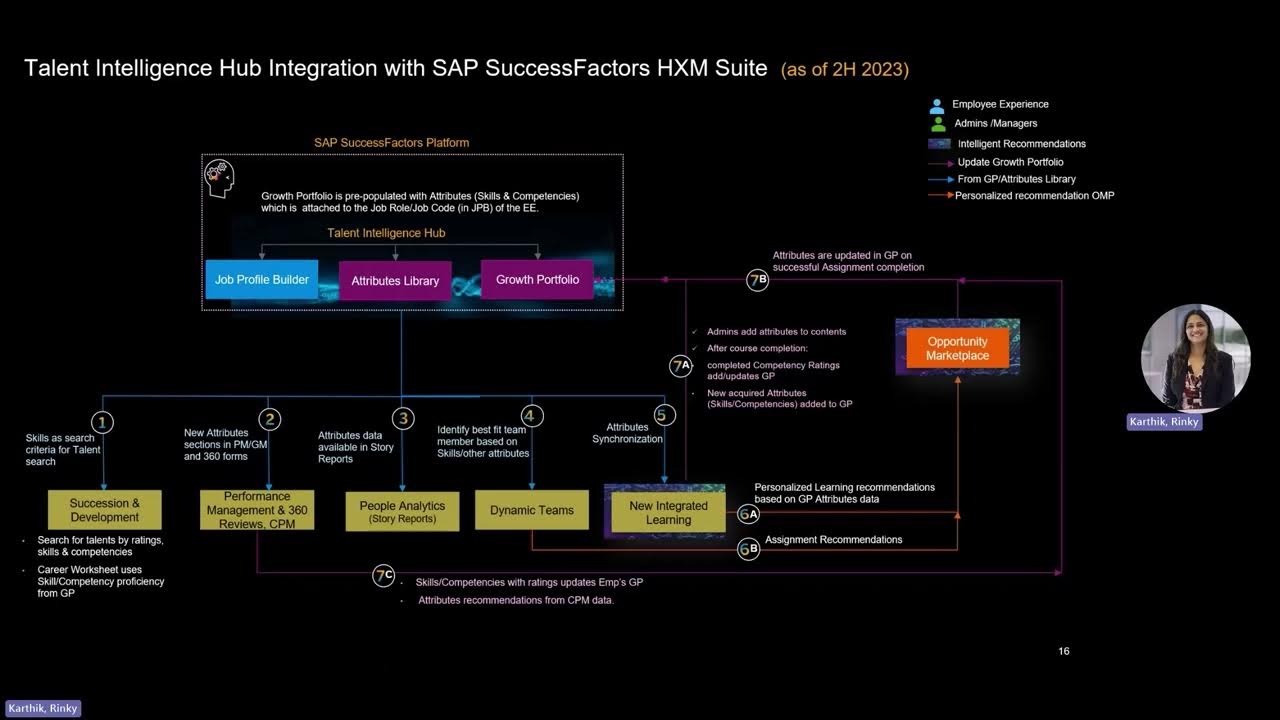8 lessons on building a company people enjoy working for | The Way We Work, a TED series
Summary
TLDRIn this insightful script, the speaker challenges traditional HR practices, advocating for a human-centric approach to business management. They emphasize treating employees as adults, building great teams, and valuing meaningful work. The speaker also stresses the importance of understanding business operations, delivering honest feedback, living out company values, and embracing change. They humorously note that all start-up ideas seem foolish initially, urging companies to be excited about innovation and change.
Takeaways
- 😀 **Speak Human**: Businesses can thrive with straightforward communication, avoiding jargon and acronyms.
- 🧠 **Rethink Best Practices**: Question the validity of 'best practices' and adapt to the evolving business landscape.
- 🧑💼 **Treat Employees as Adults**: Assume employees are mature and capable, which can lead to more effective work environments.
- 👥 **Management Builds Teams**: Focus on creating great teams rather than controlling individuals for better outcomes.
- 🌟 **Meaningful Work**: Encourage employees to pursue work that is significant and allows for career progression.
- 🏢 **Company as a Launchpad**: Foster a company culture where leaving employees become ambassadors, spreading positive influence.
- 📈 **Understand the Business**: Ensure all employees comprehend the business to foster a collaborative and effective workforce.
- 🗣️ **Embrace Honest Feedback**: Practice giving and receiving truthful feedback regularly to improve performance.
- 🏛️ **Live the Company Values**: Leadership should embody the company's values for employees to follow suit.
- 🚀 **Embrace Startup Mindset**: Recognize that all innovative ideas may seem foolish initially, but they drive progress.
- 🔄 **Welcome Change**: Be excited about change and avoid nostalgia for the past; look forward to the future with anticipation.
Q & A
What does the speaker believe about the use of HR jargon and acronyms?
-The speaker believes that HR jargon and acronyms like OKRs and PIPs are unnecessary and that businesses can run more effectively by communicating like regular human beings.
Why does the speaker think the concept of 'best practices' is questionable?
-The speaker questions 'best practices' because they are often just copying what everyone else does without proper measurement to determine if they are truly the best.
What is the first lesson the speaker shares about treating employees?
-The first lesson is that employees are adults and should be treated as such, not as children, by removing unnecessary layers, processes, and guidelines.
How does the speaker define the role of management in building teams?
-The role of management is to build great teams, which is evident when the team achieves amazing results and customers are happy, rather than focusing on controlling people.
What does the speaker suggest about the nature of careers and job tenure?
-The speaker suggests that careers are journeys and that it's unrealistic to expect people to do the same job for 60 years. Instead, companies should aim to be great places to be from, with former employees becoming ambassadors.
Why is it important for everyone in a company to understand the business, according to the speaker?
-Understanding the business is important because it enables smart adults to collaborate effectively, teaching each other about their roles, what matters, what is measured, and what success looks like.
How does the speaker propose changing the approach to giving feedback?
-The speaker suggests rethinking feedback as telling people the honest truth about their performance in the moment it occurs, rather than during an annual performance review.
What example does the speaker give to illustrate the importance of living out company values?
-The speaker uses the example of a CEO who is late to meetings yet expects punctuality from his team, highlighting the importance of leadership living the values they preach.
What is the speaker's view on start-up ideas?
-The speaker believes that all start-up ideas are inherently 'stupid' because if they were reasonable, someone else would have already implemented them.
Why should companies be excited about change, according to the speaker?
-Companies should be excited about change because it's an opportunity for growth and innovation. The speaker warns against nostalgia and encourages looking forward to the future.
Outlines

This section is available to paid users only. Please upgrade to access this part.
Upgrade NowMindmap

This section is available to paid users only. Please upgrade to access this part.
Upgrade NowKeywords

This section is available to paid users only. Please upgrade to access this part.
Upgrade NowHighlights

This section is available to paid users only. Please upgrade to access this part.
Upgrade NowTranscripts

This section is available to paid users only. Please upgrade to access this part.
Upgrade NowBrowse More Related Video
5.0 / 5 (0 votes)





